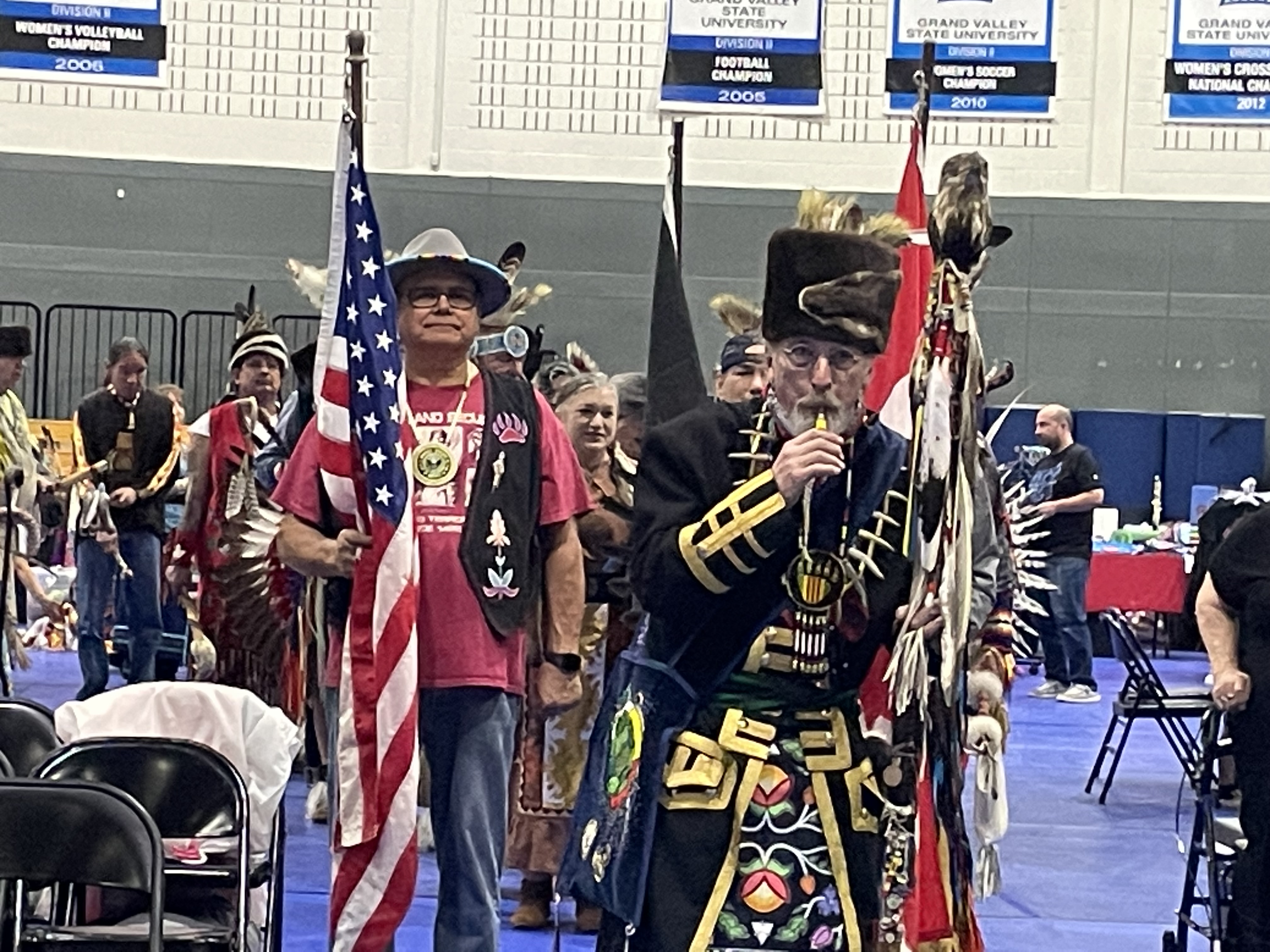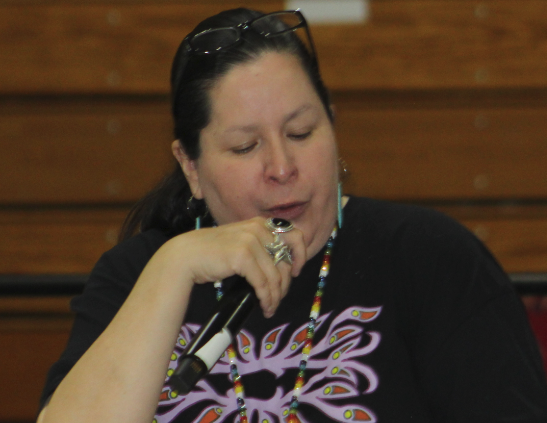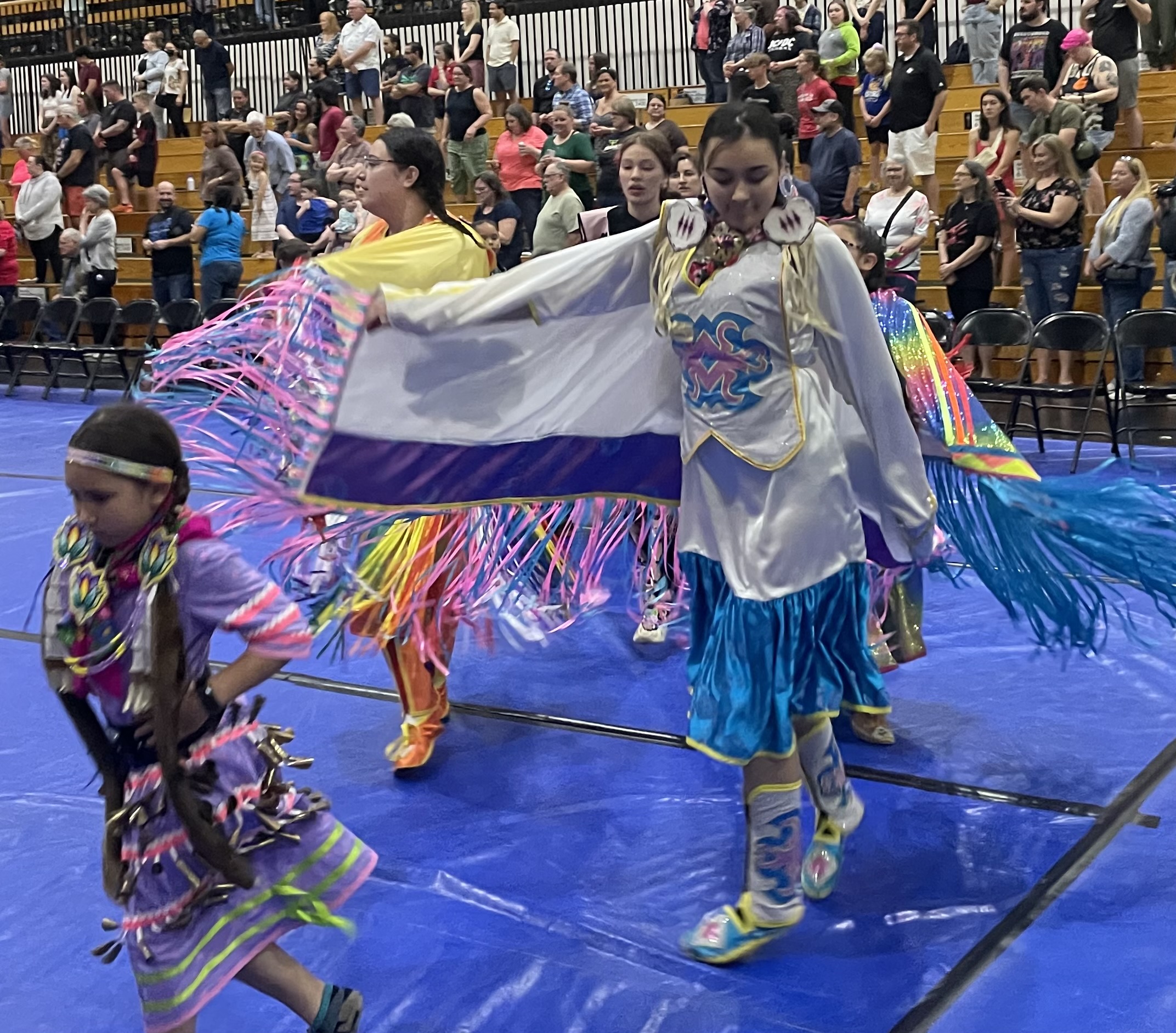
- Details
- By Levi Rickert
ALLENDALE, Mich. — The sounds of bells on ankles were heard as dancers prepared for the powwow mixed the arouma of Indian frybread being prepared, as parents assisted put finishing touches on their children's regalia, in the fieldhouse on Saturday. Shortly after 1 p.m. the 22nd Annual Celebrating All Walks of Life Powwow was underway at Grand Valley State University (GVSU) in Allendale, Michigan, near Grand Rapids, this weekend.
Due to the COVID-19 pandemic, it is the first time the powwow has been held since 2019 at GVSU.
"It was nice to see the return of the powwow after a three-year hiatus due to the pandemic. To welcome back and to celebrate with our community is exciting," Lin Bardwell (Little Traverse Bay Bands of Odawa Indians), assistant director in GVSU’s Office of Multicultural Affairs, said.

Shannon Martin (Potawatomi/Ojibwe) served as the emcee. She guided attendees to the powwow etiquitte throughout the powwow.

Native News Online's reporter, Neely Bardwell (Odawa), is a fancy shawl dancer.
For Om Mohapatra, an Asain Indian, Saturday's event was his first powwow he ever attended. A student at Lansing Community College, he attended with his girlfriend, who is Odawa.
https://www.nativenewsonline.net/currents/photos-from-the-grand-valley-state-university-powwow#sigProIdb1a7d6055d
More Stories Like This
Native News Weekly (August 25, 2024): D.C. BriefsUS Presidents in Their Own Words Concerning American Indians
Native News Weekly (January 18, 2026): D.C. Briefs
Federal Judge Orders ICE to Halt Use of Pepper Spray, Arrests of Peaceful Protesters in Twin Cities
Tunica-Biloxi Cultural Leader John D. Barbry Walks On
Help us defend tribal sovereignty.
At Native News Online, our mission is rooted in telling the stories that strengthen sovereignty and uplift Indigenous voices — not just at year’s end, but every single day.
Because of your generosity last year, we were able to keep our reporters on the ground in tribal communities, at national gatherings and in the halls of Congress — covering the issues that matter most to Indian Country: sovereignty, culture, education, health and economic opportunity.
That support sustained us through a tough year in 2025. Now, as we look to the year ahead, we need your help right now to ensure warrior journalism remains strong — reporting that defends tribal sovereignty, amplifies Native truth, and holds power accountable.
 The stakes couldn't be higher. Your support keeps Native voices heard, Native stories told and Native sovereignty defended.
The stakes couldn't be higher. Your support keeps Native voices heard, Native stories told and Native sovereignty defended.
Stand with Warrior Journalism today.
Levi Rickert (Potawatomi), Editor & Publisher



